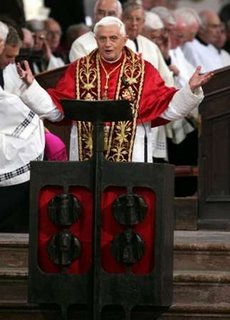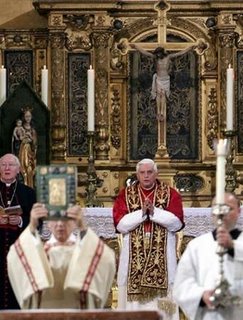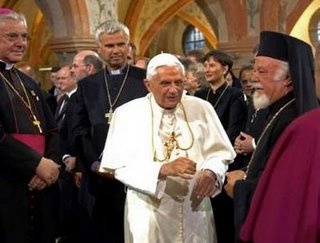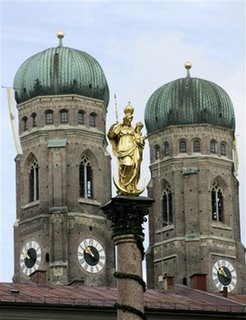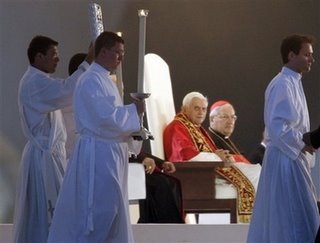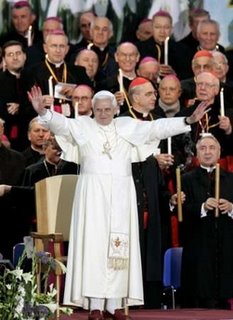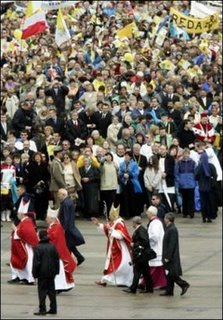
This is a schedule of Pope Benedict XVI's visit to Turkey from November 28, 2006 - December 1, 2006. Please join in the Catholic Blogsphere's prayers for the Pope.
November 28:
- 9 a.m. Departure from Leonardo Da Vinci International Airport of Rome/Fiumicino to Ankara
- 1 p.m. Arrival at Esemboga International Airport in Turkey
- Visit to the Atatürk Mausoleum
- Welcome ceremony and courtesy visit to the President of the Republic
- Meeting with the Vice Prime Minister
- Meeting with the President of Religious Affairs (Address of the Holy Father)
- Meeting with the Diplomatic Corps (Address of the Holy Father)
- Holy Mass at Ephesus (Homily by the Holy Father)
- Moment of prayer at the Patriarchal Church of St. George in Istanbul and private meeting with H.H. Bartholomew I
- Divine Liturgy at the Patriarchal Church of St. George
- Visit to the Museum of Saint Sofia
- Visit to the Blue Mosque
- Moment of prayer at the Armenian Apostolic Cathedral and meeting with H.B. Patriarch Mesrob II
- Meeting with H.E. the Syrian Orthodox Metropolitan
- Meeting with the Grand Rabbi of Turkey
- Meeting and dinner with the members of the Catholic episcopal conference
- Holy Mass at the Cathedral of the Holy Spirit (Homily by the Holy Father)
- Farewell ceremony at the Airport of Istanbul
- 1:15 p.m. Departure from the Airport of Istanbul to Rome
- 3:45 p.m. Arrival at the Airport of Ciampino in Rome





